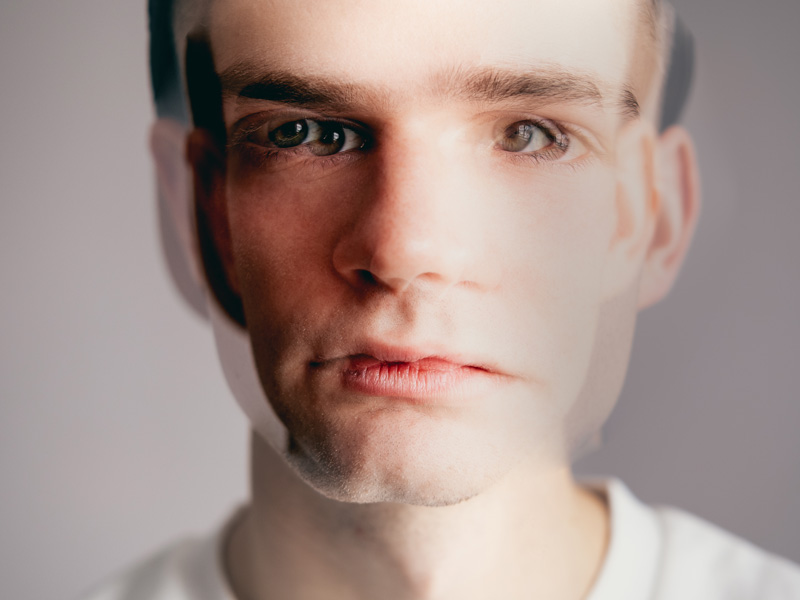Substance Abuse & Mental Health Treatment Program in Ohio
Mental Health Treatment
Mental health disorders describe when intrusive thoughts, impulsive behaviors, or powerful emotions interfere with how you live your life. They come in a wide range of categories that influence different aspects of your emotions, actions, and ways of thinking. Everyone experiences times of mental or emotional distress, but it’s important to seek help when these thoughts become unmanageable.
At KAV Health Group, we often treat “dual diagnoses,” where someone has both a substance use disorder (SUD) and another mental illness — in fact, about half of all addiction cases involve a dual diagnosis. [1] Our mental health professionals work diligently to provide the individualized help their patients need to both achieve successful sobriety and find peace with their mental health.
Types of Mental Health Disorders

Anxiety
Anxiety disorders are characterized by heightened feelings of nervousness, physically-felt tension, and avoidance behaviors that are out of proportion to a situation. In addition to causing fear, anxiety orders can put intense strain on the body due to increased stress. Anxiety disorders are treated with counseling and calming coping strategies, and in some cases anti-anxiety medication.

Depression
Depression is a constant feeling of gloominess or dread that prevents someone from participating in daily activities, even things they enjoy. They’ll often have very little energy and a negative outlook on life. Talk therapy, positive thinking, and sometimes anti-depressant medication have proven effective in helping people get themselves back on track from depression.

ADHD and ADD
Often grouped together, Attention Deficit Disorder (ADD) and Attention Deficit Hyperactivity Disorder (ADHD) can both cause difficulty focusing. Someone with ADD or ADHD may have trouble following conversations, keeping their thoughts or spaces organized, and completing tasks that take long periods of time. Specific prescriptions and refocusing techniques can greatly help those with ADD/ADHD.

Post Traumatic Stress Disorder
Post-Traumatic Stress Disorder (PTSD) describes when the memory of a traumatic event becomes paired with unmanageable emotions. Triggering that memory can cause them to relive the experience or be overwhelmed by negative feelings. This can lead to unhealthy avoidance techniques, hopelessness, and insomnia. PTSD requires careful exploration, and techniques to make those memories less intense.

Bipolar Disorder
Bipolar disorder is a mood disorder seen commonly enough that we address it separately. People with bipolar disorder experience separate periods of depression and mania, making it difficult to predict their mood or reactions, and often leading to risky behavior. Bipolar is treatable with professional counseling, coping techniques, and medications that help stabilize overall mood.
REQUEST CONSULTATION

Mania/Hypomania
Mania and hypomania are mood disorders in which someone becomes intensely excited, happy, energetic, and even impulsive. Someone with mania or its less-intense form hypomania may be easily distracted, talk excessively or without a filter, sleep less, and make riskier decisions. These conditions can be treated with therapy and specific mood-stabilizing medications.

Personality Disorders
Personality disorders are characterized by distinct personalities and behavior patterns that are often outside societal norms. These include borderline, antisocial, narcissistic, and avoidant personality disorders. Personality disorders make it difficult to function socially, and require professional guidance to help the sufferer understand and sometimes work around their own thought processes.

Schizophrenia
Schizophrenia is a breakdown in someone’s ability to correctly perceive reality. This might include seeing or hearing things that aren’t really there, and irrational thoughts or behaviors. It requires lifelong treatment and specialized care, even when the person with schizophrenia’s delusions or hallucinations seem to have subsided. Most cases will involve medication or hospitalization at some point in time.

Eating Disorders
Eating disorders refer to when someone’s eating habits cause extreme weight gain, weight loss, or gastrointestinal damage. Often accompanied by distorted self-image, eating disorders can cause dramatic changes in appearance and tremendous harm to the body’s organs. Treatment will depend on the specific disorder, but will generally require counseling and guided nutritional assistance.

Insomnia
Insomnia is an inability to sleep in a healthy way, such as difficulty falling asleep or being unable to reach the REM phase of sleep. Someone with insomnia will often be exhausted, have diminished motor skills, and struggle to performing basic tasks. While counseling and guidance can help, they’ll often need a sleep study where a specialist can find the root of the insomnia and provide appropriate treatment.

Phobias
Phobias are deep-seated, debilitating fears of a specific thing or situation. They can cause extreme physical discomfort, profuse sweating or chills, panic attacks, nausea, and near paralysis. Treatments vary by phobia, but often include cognitive behavioral therapy, medications, or guided exposure therapy, all of which help desensitize the patient to their phobia.
Mental Illness Doesn’t Have To Hold You Back
Even with mental health disorders, you can have a happy, successful life — and our team at KAV Health Group can help. Start overcoming your mental issues by contacting us today!


